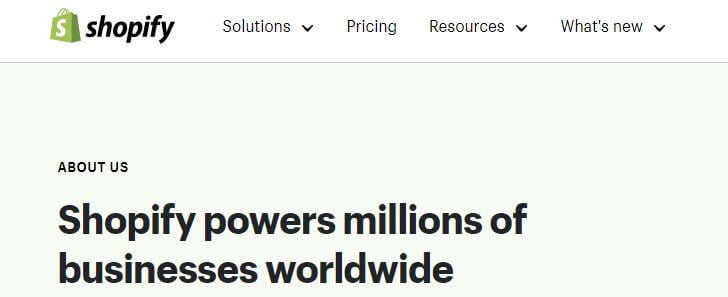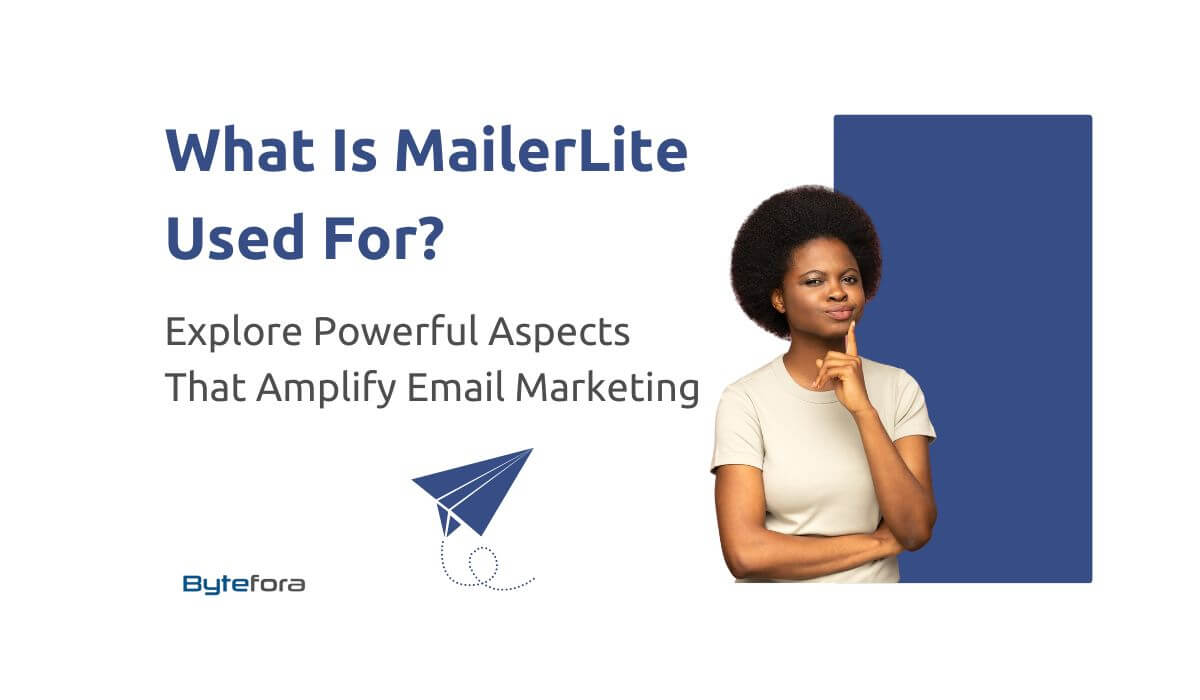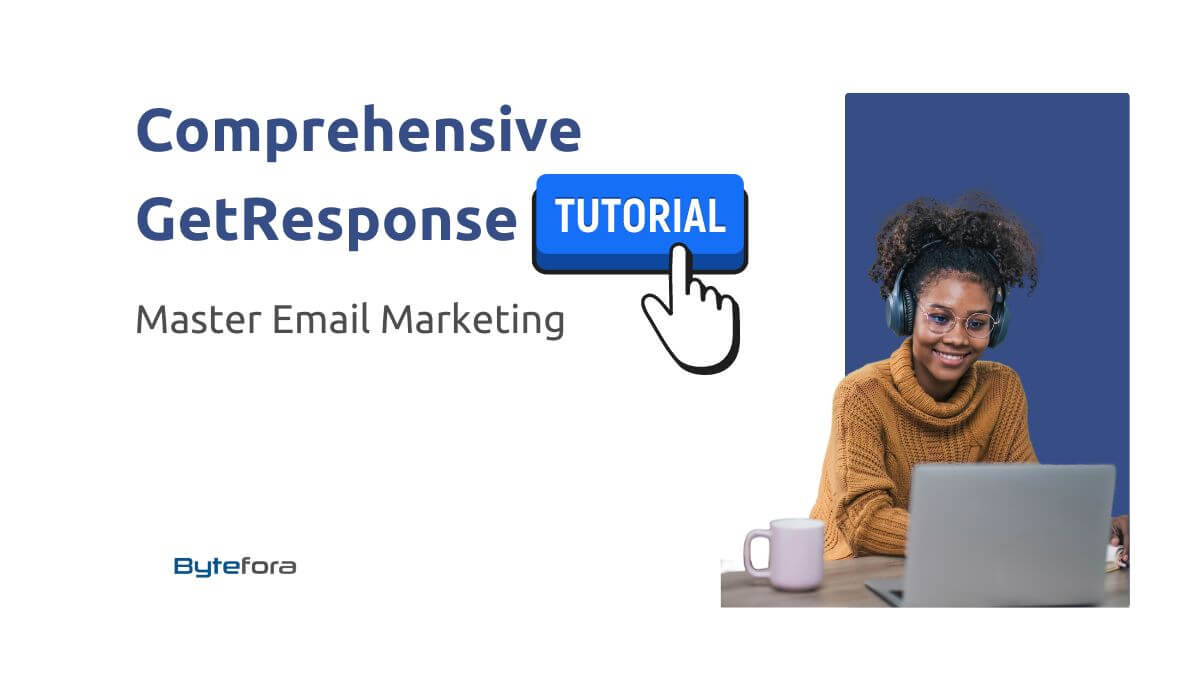The debate of ClickFunnels vs Shopify often becomes central when choosing the right platform – a decision that can significantly impact your business. Let’s dive into an in-depth comparison between ClickFunnels and Shopify. These platforms are commonly at the forefront of an entrepreneur’s mind, but understanding their distinct functionalities and how they align with your business needs is crucial.
Table of Contents
Quick Comparison
For those seeking a quick summary of the Shopify vs ClickFunnels comparison:
If your business focuses on creating targeted, high-converting sales funnels, particularly for digital products or services, ClickFunnels is the ideal choice. It specializes in funnel optimization and conversion, making it well-suited for specific marketing strategies.
On the other hand, Shopify is the better option if you’re looking to build and manage a comprehensive online store. Its strengths lie in inventory management, payment processing, and scalability, making it perfect for a wide range of retail businesses.
Ultimately, the decision depends on whether your focus is on funnel-based marketing or managing an expansive e-commerce store.
Now, let’s dive deeper and further dissect how ClickFunnels and Shopify uniquely cater to diverse business needs, ensuring you’re equipped with all the necessary information to make a decision that best serves your entrepreneurial objectives.
Understanding ClickFunnels and Shopify
What is ClickFunnels?
ClickFunnels is a sales funnel builder designed to streamline the process of selling products and services online. It simplifies the customer journey, from initial interest to final purchase, by creating a series of steps that lead potential customers toward conversion.

What is Shopify?
Shopify, on the other hand, is a comprehensive e-commerce platform enabling businesses to create online stores with ease. It’s not just about selling; Shopify provides tools for inventory management, payment processing, and a whole suite of features to run an online store efficiently.

Core Features Comparison
Understanding the core features of ClickFunnels and Shopify is essential to discern which platform aligns better with your business needs.
Sales Funnel Creation
ClickFunnels is primarily designed to create and optimize sales funnels. It provides a wide array of funnel templates tailored to various marketing goals, such as lead generation, sales, webinars, and membership sites. Each template can be customized with a drag-and-drop editor, allowing users to add elements like opt-in forms, videos, and checkout processes. This specialization in funnel creation makes ClickFunnels ideal for businesses that rely heavily on targeted marketing campaigns and sales strategies.
Shopify, while not a dedicated sales funnel creator, offers some capabilities for funnel-like experiences through its app marketplace. However, its primary focus remains on creating a comprehensive online store. The platform offers a more holistic approach, encompassing everything from product listings and collections to shopping cart and checkout functionalities. For businesses looking for an all-in-one solution to build and manage an online store, Shopify stands out.
E-commerce Storefront
Shopify excels in creating a fully functional e-commerce storefront. It offers a range of customizable themes to design your store, extensive product management features, and integrated payment and shipping solutions. Shopify’s platform is equipped to handle everything from inventory management to customer relationship management, making it a robust solution for businesses focused on building a strong online retail presence.
In contrast, ClickFunnels, while it can be used to sell products, is more focused on the marketing aspect rather than comprehensive store management. It’s more about creating targeted sales pages and streamlined checkout processes rather than managing a full-scale online store. This makes it more suitable for businesses that are primarily focused on lead generation and conversion rather than managing a wide range of products and a large customer base.
The core features of each platform cater to different business needs: ClickFunnels is geared towards effective funnel building and conversion optimization, making it ideal for targeted marketing campaigns. Shopify, on the other hand, offers a complete suite for building and managing an e-commerce store, suitable for businesses looking for a broad retail solution. Choosing the right platform depends on whether your focus is on funnel-based sales or a comprehensive online store experience.
Personal Experience
Throughout my journey in the online business landscape, I’ve actively engaged with both ClickFunnels and Shopify, each serving a distinct and valuable role in my entrepreneurial pursuits.
Focusing first on ClickFunnels, I found its application especially beneficial in my real estate business, particularly within the wholesaling niche. Here, ClickFunnels emerged as an invaluable tool. Its streamlined process for creating sales funnels was pivotal in effectively capturing leads and driving conversions.
The platform’s user-friendly interface allowed me to customize each funnel to precisely meet the unique demands of real estate marketing, enabling targeted outreach to potential buyers and sellers. Additionally, the ability to craft specific landing pages for each property, coupled with seamless CRM integration, significantly enhanced my processes for lead generation and management.
Meanwhile, my venture into the e-commerce sector was propelled by Shopify. I have leveraged Shopify to construct online stores across a variety of niches, and its versatility has been a standout feature. Shopify excels in providing an all-encompassing e-commerce solution that is both efficient and intuitive to use. From setting up stores and managing inventory to processing payments, Shopify handled it all with ease.
Furthermore, the platform’s extensive library of themes and customization options enabled me to design each store to uniquely reflect the character of its specific niche. The integrated analytics tools were particularly insightful, helping me to understand customer behavior and tailor my marketing strategies for optimal effectiveness.

Comparing my experiences, ClickFunnels demonstrated its excellence in creating targeted marketing funnels for real estate. At the same time, Shopify proved to be an exceptional tool for managing and scaling diverse online stores. This contrast in usage has solidified my understanding that the choice between ClickFunnels and Shopify should align closely with one’s specific business goals and needs.
Whether it’s for driving targeted actions in a niche market like real estate or building a flexible and scalable online store, both platforms offer robust and specialized solutions to cater to different facets of the digital business world.
Ease of Use of Clickfunnels vs Shopify
The ease of using an e-commerce or marketing platform is crucial. This section explores how ClickFunnels and Shopify stack up in terms of user-friendliness.
User Interface and Experience
ClickFunnels offers a streamlined interface focused on building and managing sales funnels. While it provides robust functionalities, the platform’s design is geared towards guiding users through the funnel creation process, making it relatively straightforward for users to construct and optimize their sales funnels. However, it might require some initial learning, especially for those new to digital marketing concepts.
Shopify, known for its user-friendly design, excels in providing an intuitive experience for creating and managing an online store. Its dashboard is cleanly organized, allowing easy access to different sections like product management, orders, analytics, and settings. The platform is designed to accommodate users with varying levels of technical expertise, making it a popular choice for entrepreneurs who are new to e-commerce.
Setup and Management
Setting up a store on Shopify is more straightforward compared to creating a funnel in ClickFunnels. Shopify guides users through each step, from setting up the store layout to adding products and setting up payment methods. This ease of setup is one of Shopify’s key selling points, especially for those who are new to e-commerce.

On the other hand, setting up a sales funnel in ClickFunnels involves more strategic thinking and planning. Users need to understand the customer journey and how to guide potential customers from awareness to purchase effectively. While ClickFunnels provides templates and guidance, the process requires a deeper understanding of marketing principles compared to setting up a basic online store.
The ease of use for both platforms depends mainly on the user’s familiarity with e-commerce and online marketing. Shopify is often favored for its straightforward setup and management, making it ideal for beginners to mid-level users. ClickFunnels, while offering powerful tools for funnel creation, might be better suited for those with some experience in digital marketing or those willing to invest time in learning its intricacies.
Marketing and SEO Capabilities
Marketing Tools and Integration
ClickFunnels offers robust marketing tools tailored explicitly for lead capture and conversion. Its suite of tools includes email autoresponders, affiliate program management, and advanced analytics to track funnel performance. For instance, if you’re launching a new product, ClickFunnels can help you create a compelling landing page, run email campaigns, and track the success of these initiatives in real time.
Conversely, Shopify focuses on broader marketing capabilities suitable for an online store. It integrates with major social media platforms, allowing store owners to sell directly on these channels. Additionally, Shopify’s analytics provide insights into customer behavior, helping to tailor marketing efforts. An example of Shopify’s strength is its ability to turn data from your store visits into actionable marketing strategies, such as retargeting ads or personalized email campaigns.
Search Engine Optimization
When it comes to SEO, Shopify stands out with its comprehensive features, ensuring that your online store ranks well on search engines. It offers customizable URLs, automatic sitemap generation, and easy editing of title tags and meta descriptions, which are essential for SEO. This means that a Shopify store can potentially have a better chance of appearing in top search results, leading to increased organic traffic.
ClickFunnels, while not primarily focused on SEO, still provides basic capabilities. You can optimize your sales funnels with keywords and social sharing information, but its capabilities are not as extensive as Shopify’s. This makes Shopify a better choice for long-term organic growth strategies through search engines.
Pricing and Value for Money
Pricing Models of ClickFunnels and Shopify
Both ClickFunnels and Shopify offer tiered pricing models but with different structures and inclusions.
ClickFunnels’ pricing is primarily based on the number of funnels and visitors, with plans ranging from a basic level to more advanced offerings that include additional features and higher funnel limits. Importantly, ClickFunnels also offers a free trial option, allowing users to test the platform’s capabilities before making a financial commitment. This approach is particularly beneficial for businesses whose primary focus is on creating multiple, high-converting sales funnels, as it provides an opportunity to explore and assess the platform’s effectiveness in meeting their specific marketing needs.

Shopify’s pricing, on the other hand, is based on the scale of your online store. It starts with a basic plan suitable for small businesses. It scales up to more advanced plans that offer additional features like professional reports and lower transaction fees. Moreover, Shopify also offers a free trial option, allowing businesses to explore its features before committing to a plan. This flexibility, coupled with its scalable structure, makes Shopify an attractive option for businesses that anticipate growth and expansion of their online presence.

Assessing the Return on Investment
Evaluating the ROI of ClickFunnels vs Shopify depends on your specific business needs and sales strategies. Suppose your business model relies heavily on creating effective sales funnels, and you have a solid strategy for traffic generation. In that case, ClickFunnels might offer a better return due to its specialized focus. For instance, a business focused on digital products or courses can benefit immensely from ClickFunnels’ targeted funnel approach.
Conversely, if your business is more about building a brand and scaling an online store with a wide range of products, Shopify could provide a better ROI. Its comprehensive store management tools, integrated payment processing, and extensive app ecosystem make it a robust platform for growing an e-commerce business.
Support and Community
Customer Support Services
Shopify and ClickFunnels both provide extensive support systems but differ in their approach and availability. Shopify offers 24/7 support via email, chat, and phone, which is invaluable for store owners who need immediate assistance. Additionally, Shopify’s extensive documentation and community forums are rich resources for troubleshooting and learning.
ClickFunnels, while offering robust support through email and a comprehensive knowledge base, does not provide round-the-clock phone support. However, it boasts a vibrant community of users and an array of training materials and webinars that can be immensely helpful.
Community and Resources
The strength of a platform’s community can be vital, with both offering forums, resources, and third-party support. ClickFunnels has a particularly active community, with numerous Facebook groups and forums where users share tips, strategies, and support. This community aspect can be a significant advantage, especially for new users looking to learn from experienced peers.
Shopify’s community, on the other hand, is vast and global, encompassing store owners, developers, and e-commerce experts. The Shopify Community forums and blogs are replete with advice, updates, and success stories, offering a wealth of information for both new and seasoned users.
Case Studies and Real-world Applications
Success Stories with ClickFunnels
Numerous businesses have seen transformative success with ClickFunnels, particularly in maximizing their sales funnel efficiency. For example, a fitness coach might use ClickFunnels to sell their training programs, leveraging the platform’s ability to create a compelling journey from lead capture to purchase. These success stories often highlight the platform’s effectiveness in boosting conversions and sales through targeted funnels. Some more examples:
- Dream Client Academy: Founded by Alex Albarran, Dream Client Academy is a marketing agency that uses ClickFunnels for their sales. They help client businesses unlock rapid growth through education, consulting, and marketing, achieving $100K in monthly revenue.
- Marketplace SuperHeroes: Started by Stephen Somers, Marketplace SuperHeroes is a skills training business that also utilizes ClickFunnels for sales. They focus on building Amazon businesses that operate globally, generating $350K per month in revenue.
- Romans Tide: An e-commerce store founded by Nick and Angelica in 2015, Romans Tide uses ClickFunnels for their sales. They are a full-service, results-driven Amazon Brand Management Agency, helping brands maximize their sales potential on Amazon, with monthly revenues of $100K.

Shopify’s E-commerce Triumphs
Shopify has empowered a wide range of businesses, from small startups to large enterprises, to thrive in the e-commerce space. For instance, a boutique clothing store can leverage Shopify to not only sell products but also manage inventory, process payments, and analyze customer data. These success stories often focus on how Shopify’s comprehensive features and scalability have enabled businesses to grow from modest beginnings to significant online presence. Some more examples:
- Asphalte: A clothing brand with a revenue of €25 million per year, Asphalte has become a notable Shopify success story. They focus on creating clothes based on customer preferences without charging upfront, a model that has resonated well with their target audience.
- Partake Foods: This company, with revenues under $5 million per year, is a testament to Shopify’s ability to scale diverse businesses. They specialize in healthy snacks catering to specific dietary needs and have seen significant growth since their launch on Shopify.
- Chubbies: A premium apparel brand with a fun, laid-back style, Chubbies has achieved $45 million in annual revenue. Their success story is not just about their unique product but also about their strong brand voice and community engagement, powered by Shopify.
Pros and Cons of Shopify vs ClickFunnels
ClickFunnels: Pros and Cons
ClickFunnels offers unparalleled funnel-building capabilities but may fall short in broader e-commerce functionalities. Its strengths include:
- High-converting sales funnel templates.
- Powerful marketing integrations.
- Strong focus on maximizing customer lifetime value.
However, its limitations are evident in:
- Less emphasis on SEO and organic growth.
- Limited e-commerce features compared to full-fledged online store platforms.
- Potentially higher learning curve for beginners in funnel building.

Shopify: Pros and Cons
While Shopify is a powerhouse for creating online stores, it might not provide the same level of sales funnel specialization as ClickFunnels. Its advantages are:
- Comprehensive e-commerce features and tools.
- Strong SEO capabilities for organic traffic.
- A vast ecosystem of apps and integrations.
On the downside, Shopify:
- It may not offer as targeted and effective sales funnel capabilities as ClickFunnels.
- It could be more costly for advanced features and lower transaction fees.
- Requires additional plugins or integrations for specific marketing funnels.
Final Verdict: Navigating Your Choice Between ClickFunnels and Shopify

As we conclude this detailed exploration, it’s clear that the decision between ClickFunnels and Shopify isn’t just about choosing a tool; it’s about choosing a partner for your entrepreneurial journey. My experience with both platforms has reinforced this perspective, as each offers unique strengths and caters to distinct aspects of online business management.
ClickFunnels , as I experienced in my real estate business, is a powerhouse for creating and optimizing sales funnels. This makes it an ideal choice for businesses heavily reliant on direct marketing strategies and sales funnel conversions. The platform’s ability to craft customer journeys leading to high conversion rates is unmatched, whether for digital products, services, or targeted marketing campaigns.
On the other hand, Shopify, which I used to build online stores, emerged as a comprehensive e-commerce platform. Its strengths in inventory management, payment processing, and scalability are pivotal for entrepreneurs needing a robust system to manage an online store. Shopify’s user-friendly nature and comprehensive feature set make it a preferred choice for those aiming to establish and grow a diverse online retail presence.
Your decision should hinge on your specific business needs, goals, and the nature of your products or services. Consider:
- Your Business Model: Are you focusing on a few essential products with a high conversion rate or a broader retail strategy?
- Marketing Strategy: Do your marketing efforts rely more on targeted funnels or on a wide-reaching e-commerce presence?
- Growth Plans: How do you envision scaling your business, and which platform aligns better with this vision?
Remember, the platform you choose should not only meet your current needs but also grow with your business. Each platform offers a different path to success, and the right choice depends on the path you envision for your business.
In conclusion, whether you choose ClickFunnels or Shopify, the key is to leverage the strengths of the chosen platform to the fullest. By doing so, you can effectively build, grow, and sustain your business in the competitive world of digital entrepreneurship. The journey of choosing the right platform is just the beginning – the real adventure lies in how you use it to turn your business vision into reality.
Frequently Asked Questions (FAQs)
Can I use both ClickFunnels and Shopify for my business?
Absolutely; integrating ClickFunnels for your sales funnels and Shopify for managing the e-commerce storefront can provide a comprehensive solution, combining the strengths of both platforms.
Is ClickFunnels suitable for beginners in e-commerce?
While ClickFunnels focuses on sales funnels, which might require a specific understanding of online marketing strategies, it offers extensive training resources that can help beginners get up to speed.
Can I migrate from ClickFunnels to Shopify or vice versa?
Migration between these platforms is feasible but requires careful planning to ensure data integrity and continuity of operations. Tools and services are available to facilitate this process, but consulting with a specialist is recommended for a smooth transition.
Which platform is better for a small business just starting?
For small businesses focused on building a brand and scaling gradually, Shopify might be the better choice due to its comprehensive store management features. However, if your business model is heavily reliant on creating effective sales funnels right from the start, ClickFunnels could be more beneficial.
Are there any hidden costs associated with these platforms?
Both platforms have clear pricing structures for their plans, but it’s essential to consider additional costs such as third-party apps, plugins, transaction fees (in the case of Shopify), and potential marketing or funnel-building tools for ClickFunnels.
How does the customer support compare between ClickFunnels and Shopify?
Shopify is known for its 24/7 customer support, which includes live chat, email, and phone support. ClickFunnels also offers solid support through email and a comprehensive knowledge base, along with an active community. However, it lacks the 24/7 phone support that Shopify provides.
Can I build an email list with both platforms?
Yes, both ClickFunnels and Shopify allow you to build and manage an email list. ClickFunnels has this feature integrated into its platform, which is especially useful in the context of sales funnels. Shopify, while not having this as a native feature, offers this capability through various email marketing apps available in its app store.
Are there any industries or types of businesses that prefer one platform over the other?
ClickFunnels is often preferred by businesses that focus on digital products, online courses, and webinar hosting due to its effective sales funnel capabilities. Shopify, on the other hand, is the go-to platform for retail businesses, both small and large, that require a comprehensive online store with inventory management, shipping, and payment processing capabilities.
How easy is it to integrate other tools and services with ClickFunnels and Shopify?
Both platforms offer robust integration capabilities. Shopify has a vast app marketplace where you can find integrations for almost every need. While having fewer integrations, ClickFunnels still provides seamless connections with significant marketing, payment, and email tools.
Is it possible to scale my business with either of these platforms?
Absolutely, both ClickFunnels and Shopify are scalable. Shopify can support the growth from a small online store to a large enterprise, offering various plans and features that cater to expanding businesses. ClickFunnels is also scalable, particularly for businesses that rely heavily on sales funnels for growth, offering advanced features in its higher-tier plans.
What are the key differences in mobile responsiveness between ClickFunnels and Shopify?
Shopify offers highly mobile-responsive themes, ensuring that online stores look great and function well on all devices. ClickFunnels also ensures mobile responsiveness, particularly for its sales funnel pages, but the focus is more on the conversion aspect rather than a comprehensive store experience.
Can I integrate physical and digital products on both platforms?
Yes, both ClickFunnels and Shopify allow the integration of physical and digital products. Shopify provides a more extensive system for managing physical inventory, while ClickFunnels offers efficient ways to sell digital products, such as eBooks, courses, or webinars, through its funnels.
How do ClickFunnels and Shopify handle payment processing and security?
Shopify has its own payment gateway, Shopify Payments, and also supports a wide range of third-party payment gateways. ClickFunnels integrates with various payment processors like PayPal and Stripe. Both platforms maintain high standards of security for transactions and customer data.
Is it possible to conduct A/B testing on both ClickFunnels and Shopify?
ClickFunnels has built-in A/B testing features for its sales funnels, allowing users to test different elements of their pages to optimize for conversion. Shopify, through third-party apps, also provides A/B testing capabilities, although it’s not a native feature of the platform.
What kind of analytics and reporting can I expect from ClickFunnels and Shopify?
Shopify offers comprehensive analytics and reporting features, including sales reports, customer behavior, and traffic analysis. ClickFunnels provides analytics focused more on funnel performance, such as conversion rates and visitor behavior within the funnels. Both provide valuable insights but with different focal points relevant to their primary functionalities.
Additional Resources
For further exploration, here are some additional resources and readings to help you make an informed decision.
Mastering ClickFunnels for Real Estate – Ultimate Guide: This comprehensive guide provides an in-depth exploration of how ClickFunnels can be effectively utilized in the real estate sector. It’s an excellent resource for professionals in this industry looking to leverage ClickFunnels for marketing and sales.
Is Shopify Legit? Discover the Reliable Truth: For a detailed analysis of Shopify’s credibility and effectiveness as an e-commerce platform, consider reading this article. It offers a critical look at Shopify, helping potential users understand its legitimacy and potential for their business needs.
ClickFunnels for Real Estate: Newbie to Expert Success Guide : An in-depth guide on how to use ClickFunnels to scale in Real Estate.



